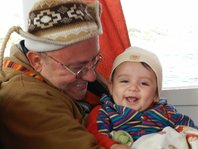 I hope to begin studying in the Fall of 2015 in your distinguished Ph.D. Program in Applied Linguistics at XXXX University. I see your program as the best fit to prepare me to meet my short and long term goals of teaching in a university in my country, South Korea, and working as a teacher trainer. I look forward to giving my all to my own research as well as directing the research of my students in the area of teacher education. The other principal reason why XXXX is my first and sole choice for my next professional stepping stone is your reputation for a focus on the sociocultural approach to L2 learning/teaching, which is the philosophy that I aspire to pursue and enhance throughout my professional career. I like very much that your especially distinguished faculty specializes in teacher education. Thus, I find no better place to help me achieve my professional goals than than your program. Korea’s social and cultural macro-structure has large influence on L2 learning. L2 is still commonly viewed as transmission of knowledge rather than social practice in Korea. I have struggled and experienced the challenges as a student growing up, and now as a teacher.
I hope to begin studying in the Fall of 2015 in your distinguished Ph.D. Program in Applied Linguistics at XXXX University. I see your program as the best fit to prepare me to meet my short and long term goals of teaching in a university in my country, South Korea, and working as a teacher trainer. I look forward to giving my all to my own research as well as directing the research of my students in the area of teacher education. The other principal reason why XXXX is my first and sole choice for my next professional stepping stone is your reputation for a focus on the sociocultural approach to L2 learning/teaching, which is the philosophy that I aspire to pursue and enhance throughout my professional career. I like very much that your especially distinguished faculty specializes in teacher education. Thus, I find no better place to help me achieve my professional goals than than your program. Korea’s social and cultural macro-structure has large influence on L2 learning. L2 is still commonly viewed as transmission of knowledge rather than social practice in Korea. I have struggled and experienced the challenges as a student growing up, and now as a teacher.
After completing my education at XXXX University, I aim to contribute to research on L2 teacher education with particular attention to the proper proportion of L1 and L2 uses. With the “English fever” in Korea and the educational policies constantly changing, a plethora of research has been conducted on teaching practice and the possible challenges with regards to secondary school teachers and students. However, due to the shorter history of the public English education in elementary school, insufficient attention is paid to L2 learning as the current trend is to carry out lessons that foster communicative competence. In this regard, the Korean Ministry of Education has repeatedly required that L2 teachers maximize their L2 use. However, as an EFL instructor currently teaching at an elementary school, I have witnessed an inevitable challenge: the lack of L2 teachers who have adequate knowledge on the social content of English and how this relates to teacher cognition. Most L2 teachers do not share the same beliefs as the Ministry because they were not taught the same way as L2 students. This makes it even harder for them to follow the policies enforced today since elementary school teacher tend not to see themselves as competent bilinguals.
Inspired by Dr. Johnson’s publication “Second Language Teacher Education”, I came to better understand my role better as a L2 teacher. Thus, I look forward to engaging in research that sheds light on the relationship between the teacher’s L1/L2 use and their beliefs about themselves as L2 teachers. In doing so, I would like to scrutinize Korean teaching condition and the prevalent state of instructional practice. I believe that with such an investigation I will be able to provide creative pedagogical implications concerning the challenges that teachers and students face. I look forward to developing guidelines for L2 teachers’ L1 and L2 uses and appropriate teaching strategies at different levels. I also look forward to exploring issues surrounding teacher training programs in Korea that emphasize raising teacher cognition so as to approach teacher education from a sociocultural perspective.
I look forward with keen anticipation to many decades of dedication to L2 teacher training in Korea, always labouring mightily to bridge theory and practice in teacher education. I am especially confident that I will be able to excel in your program as a result of having earned the MA in TESOL at XXXX University in Seoul, Korea, during which time I explored the cognitive, psycholinguistic, and intercultural dimensions of L2 learning. I especially delved into the relationship between L2 learning and cognition while writing my MA thesis on how metacognitive awareness plays a vital role in L2 learning and higher mental functions. Having acquired advanced knowledge on the significance of cognitive elements of learning, I am excited to apply it to the area of the teacher education and teacher cognition as well. I now look forward to building on what I have learned so far in your distinguished program at XXXX University and I most sincerely thank you for considering my application to your program.

